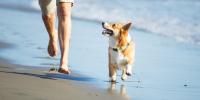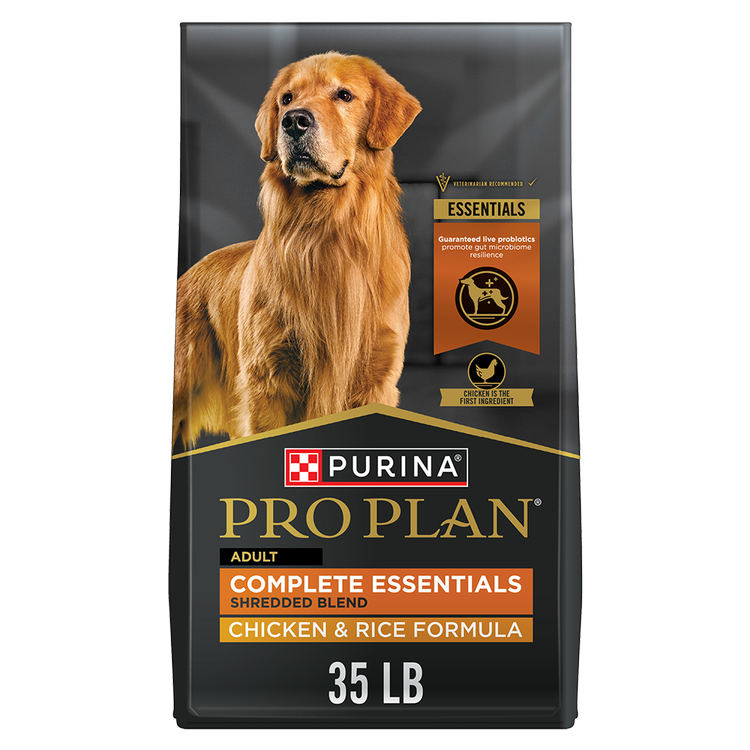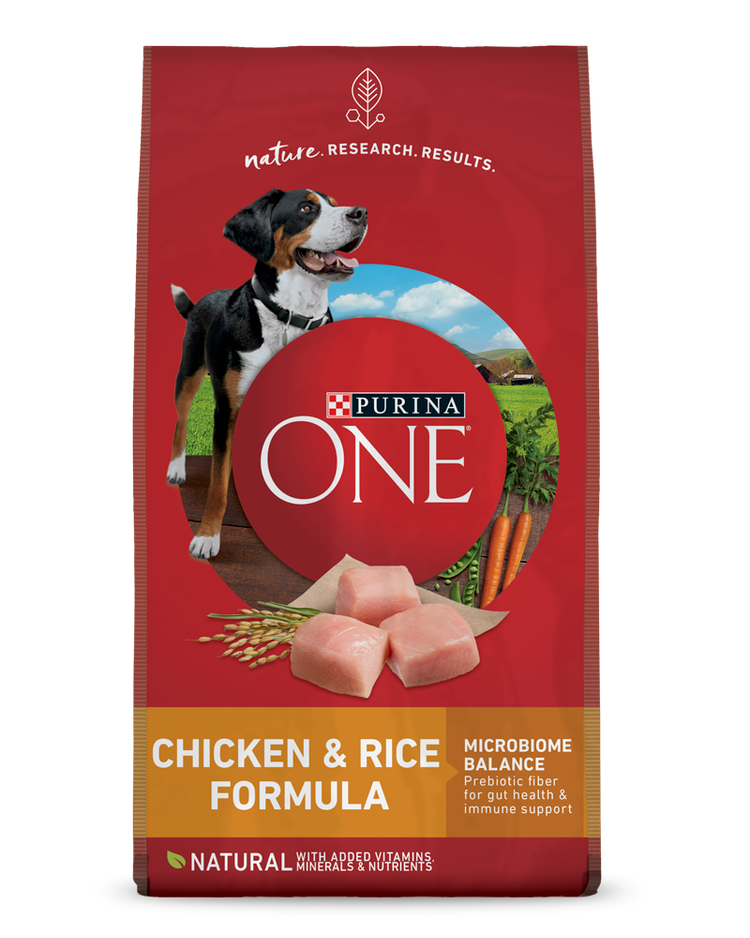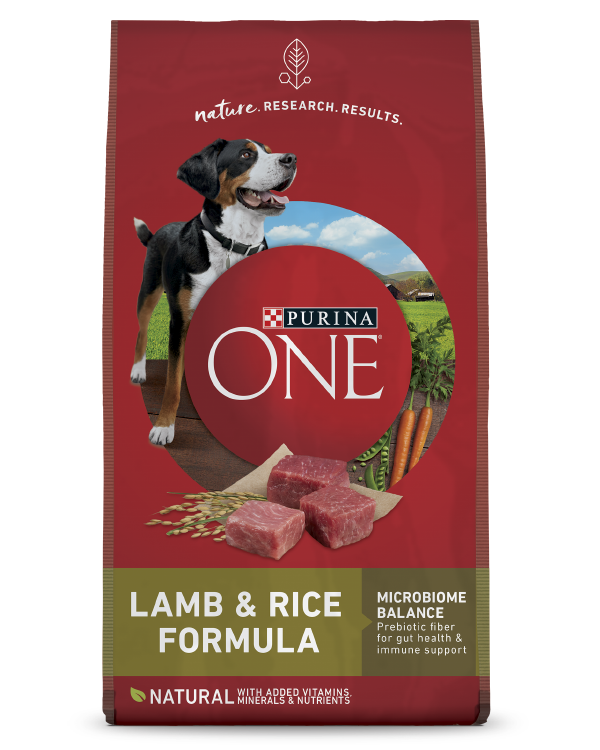A Guide to Taking Your Dog to the Beach


The sun’s out, the weather’s warm, and you want to go to the beach. If you’re a dog parent, it’s probably a no-brainer that you want to bring your furry friend.
Whether your dog’s an elderly Labrador that enjoys splashing through the waves even in their older age or a nervous Pug about to discover how much they love running through the sand, taking a dog to the beach can bring so much joy! Many dogs (and many people) can have such a great time. But you and your dog will want to be prepared for the most beach trip-with-dog fun.
For dog-friendly beach vacations, you’ll need to consider a few dog beach tips, some of which include:
- If dogs are allowed
- Fun games and activities that owners can do with their furry friends
- Dog beach safety and training
- What happens if dogs eat seaweed or sand
- How to keep dogs cool on hot beach days
- How to clean and care for your pup’s coat and skin for a beach trip
Our experts share information identifying solutions to these concerns so you can feel fully prepared to relax and have a fun day at the beach with your pup.
Are Dogs Allowed at the Beach?
Also, are dogs required to be on leash at all times? The first thing you’ll want to know before going to the beach with your pup is if they’re allowed there in the first place. Next, you’ll want to know about their leashing policies. Some beaches are dog-friendly, and some don’t allow any dogs. The rules against dogs may be ongoing or at certain times. Find out before going to be safe.
Dog Beach Games and Activities
The beach is a wonderful place for games and activities with your pup. There are so many fun activities that you and your dog may enjoy at the beach. You’ll just need to find the right ones for you both. Here’s some of the beach-related excitement you can try:
- Going for a stroll on the beach: Do you love taking long walks on the beach? A tried and true, perhaps cheesy question for some, this is a favorite activity for people and their dogs from all walks of life. A walking dog at the beach is often a happy dog. Whether you and your dog enjoy running, you and/or your dog is a wheelchair rider, or you use a cane, this can be a fulfilling activity filled with adventure and discovery. You’ll need to check if the beach you’d like to visit meets accessibility standards for you and your dog, as beaches vary.
- Also, make sure your dog doesn’t consume anything potentially dangerous along the way. As we’ll explain later, they might be tempted by seaweed or sand, and consuming those can be very dangerous for them.
- Playing fetch: Bring a flying disc or a ball and have fun in the sun! If you choose to play fetch in the water, make sure the disc or ball is brightly colored and floats. We recommend bringing a disc versus a ball, as dogs’ mouths can close better around a flatter object and are less likely to ingest water while playing. Also, it’s a good idea to avoid playing games too far from the shoreline, so keep it in shallow waters.
- Going swimming: Keep your dog close to the shore and by your side. We recommend a swim tether to ensure the dog is always within reach. If your dog doesn’t yet know how to swim, this might be a good teaching opportunity. You’d need to bring a life jacket for dog swimming safety, so they feel more confident and happier in the water. If their dog swimming skills are high, as another dog swim beach activity, you might be able to teach them how to boogie board or surf!
- Going boating: This activity requires a doggie life jacket. If the water’s calm, try a boat ride together! Choose the type of boat that best suits your and your dog’s size and mobility needs.
- Playing in the sand: Dogs love to dig, but they should be careful not to eat any sand.
Keep your dog hydrated and cool to avoid overheating. We advise against letting dogs drink from the body of water they're swimming in. You can help reduce the odds of that happening by ensuring that you're providing a source of fresh, cool water to drink. If you ever notice signs of overheating, such as diarrhea or vomiting, your dog is in danger of suffering from heat stroke, and you need to cease all activities immediately, take your dog to a cooler place, and call your veterinarian.
Dog Beach Safety and Training
Preparing with beach dog training is a good idea for the best beach safety for dogs and other beach-based critters. An unleashed dog can have significant negative impacts on nesting turtles and nesting/feeding shorebirds.
Ensuring a dog is trained to come to its owner when called is a good idea. Once your dog completes basic obedience training, you’ll better be able to help it avoid danger in the beach environment. Your dog should also be well-socialized.
If your dog isn’t fully trained, it may be a good idea to stick to going for a stroll on the beach as your activity with them so they can remain leashed. If they’re uncomfortable around other people, try going to the beach with them when there are fewer people, such as on a weekday morning.
Watch for hazards. A few perhaps obvious and not-so-obvious hazards may include:
- Rough water conditions: Keep your dog by the shoreline to avoid unexpected rough currents.
- Drinking salt water: This will dehydrate your pup.
- Hot sand: Too-hot sand can burn your dog. Consider sticking to walking along the water’s edge or getting protective booties for your dog.
- Dangerous sea animals near the shore, such as jellyfish or stingrays.
- Sunburn: Yes, dogs can get sunburn and skin cancer, too. Get pet-safe sunscreen to keep your dog’s skin protected, and apply it to any area with sparse fur, including the ears, nose and other areas, depending on the breed.
- Eating sand or seaweed: Watch out for what your dog may try to eat, as it may be hazardous.
Can Dogs Eat Seaweed?
The better question is: Can dogs eat seaweed at the beach? No, they can’t. While certain kinds of seaweed are safe for your dog to eat, as a rule of thumb, it’s not safe for dogs to eat wild seaweed. That means you need to ensure your dog does not eat seaweed found at the beach. They can sniff it, but they can’t eat it. If your dog eats wild seaweed, call your veterinarian immediately.
Various reasons why dogs can’t eat wild seaweed include:
- It can contain hidden parasites or animals that are toxic for your dog to consume.
- Its salt content can also cause salt toxicosis.
- Long seaweed strands risk lodging in your dog’s intestines.
- Dry, wild seaweed risks expanding in your dog’s stomach, sometimes called “seaweed poisoning.”
Can Dogs Eat Sand?
No, it’s unsafe for dogs to eat sand. If your dog accidentally gobbles up sand, it can cause an impaction by blocking their intestines.
Also, sand can contain hidden parasites or animals. Can dogs get sand fleas at the beach? Yes, sand fleas can attack dogs generally the same way they do humans. Sand can also possibly contain high salt content. Given possible littering and all, there’s no knowing entirely what the beach’s sand comprises. If my dog ate sand at the beach, I’d call my veterinarian immediately.
How to Keep Dogs Cool at the Beach
To avoid excessive panting and sweating from your dog at the beach, you’ll need to find ways to keep them cool. Here are a few ways to keep dogs cool at the beach:
- Keep fresh water readily available
- Provide ample shade
- Provide ample opportunity to rest
- Avoid going to the beach at midday
- Keep dog-friendly fresh food nearby to feed when needed. Wet dog food can provide extra hydration.
- A typical beachside snack for humans is watermelon, which dogs should consume only minimally. However, small, seed-free slices of watermelon flesh can help cool your dog down.
Do You Need to Wash Your Dog After the Beach?
You might ask yourself, Do I need to wash my dog after the beach?
Yes, you should bathe your dog with fresh water after the beach. Two top reasons include:
- Saltwater damages dogs’ coats
- Sand in your dogs’ coats can scratch and irritate skin, which could potentially cause hot spots and rashes
As soon as possible after you get back from the beach, bathe your dog by washing them and rinsing them twice, and then rinsing them once more for good measure.
For more expert tips on dog activities, explore our other dog play articles.
Related articles

Reward Yourself with myPurina
Earn and redeem rewards for Purina products with the myPurina app.






